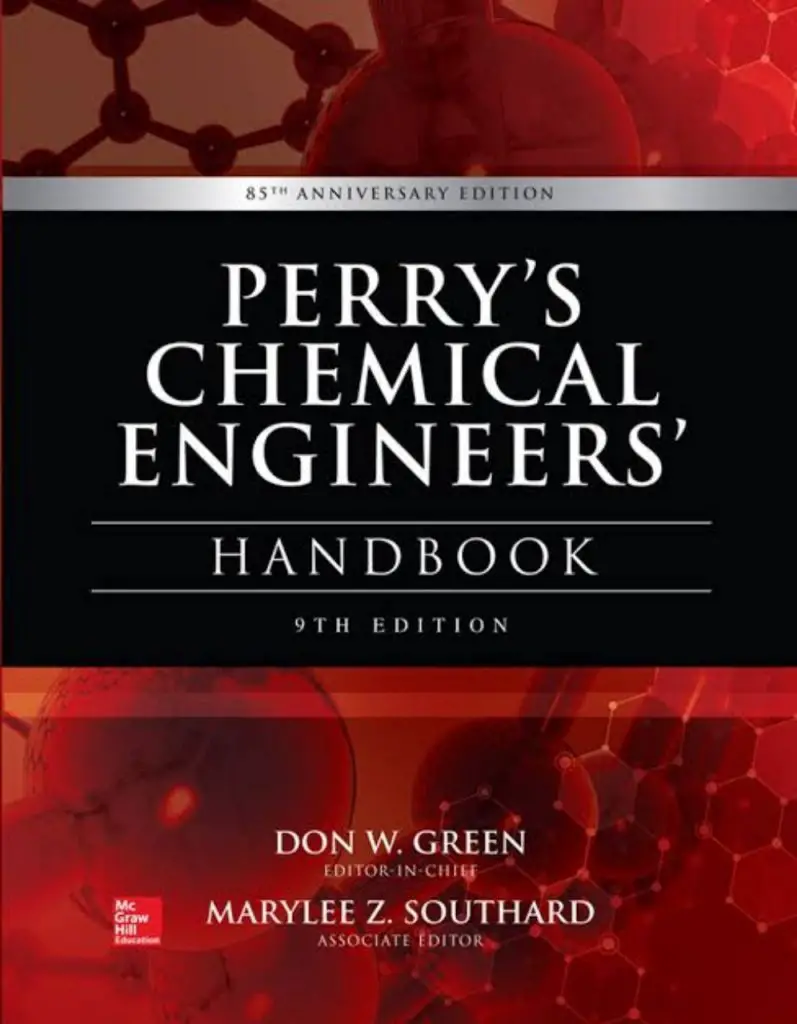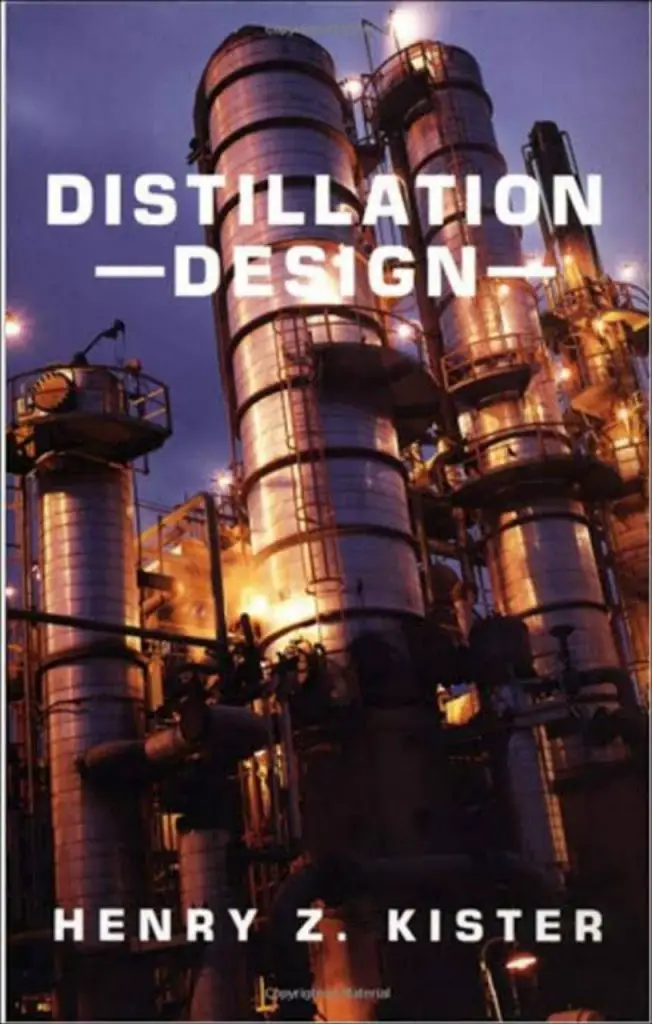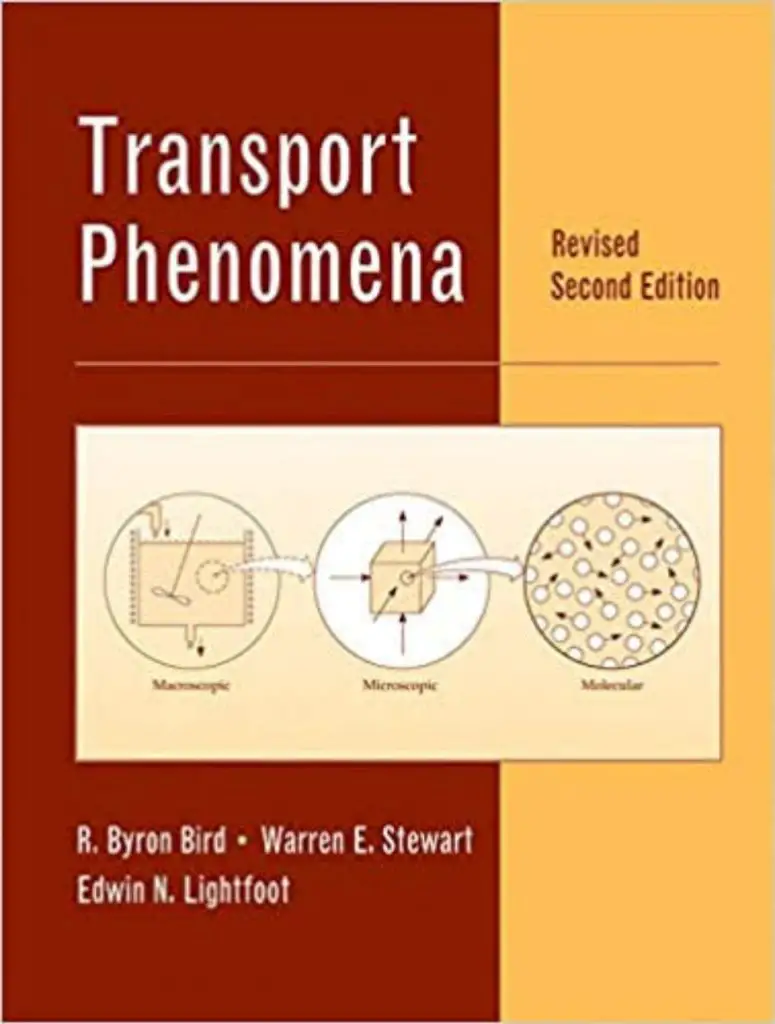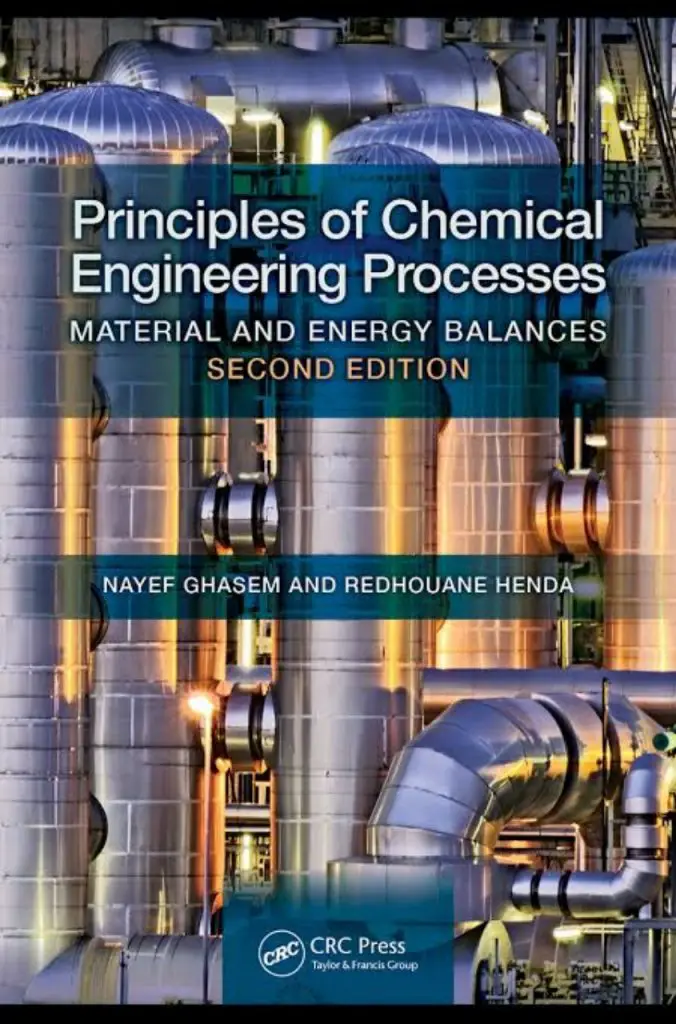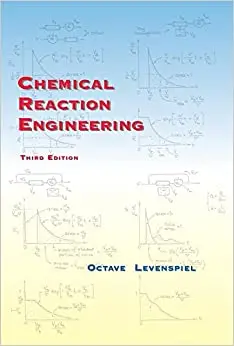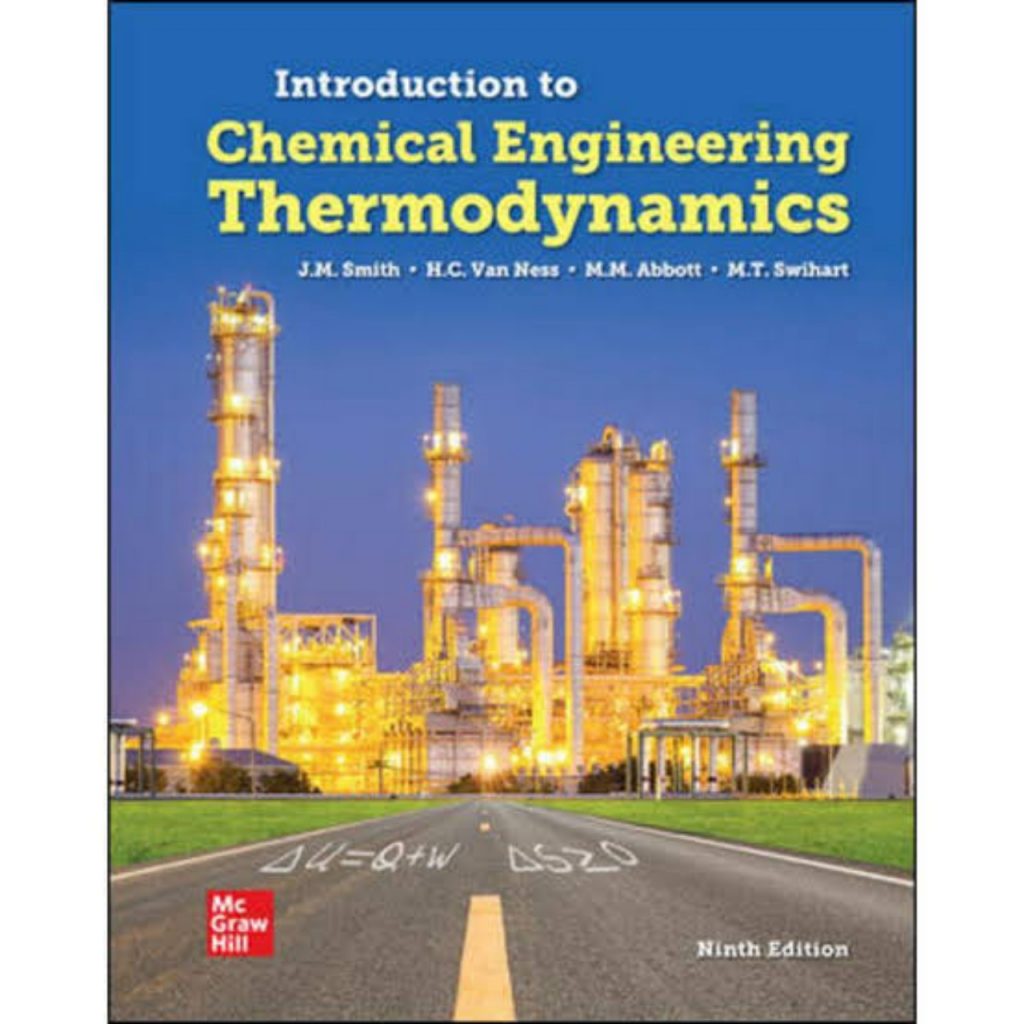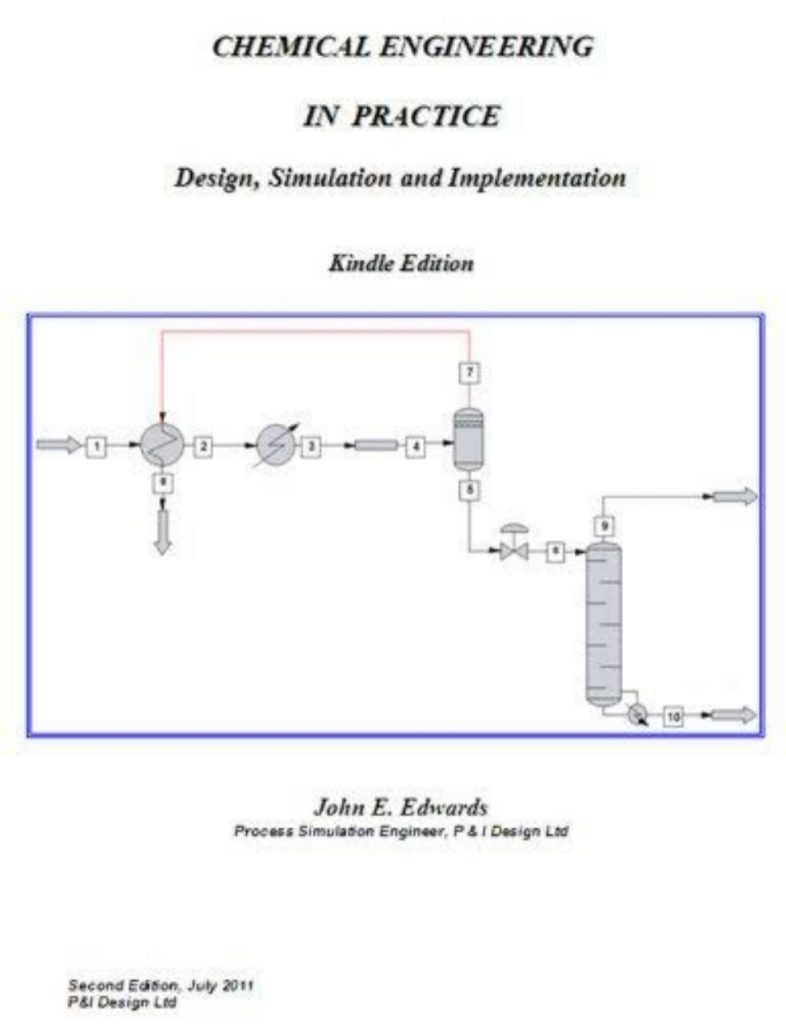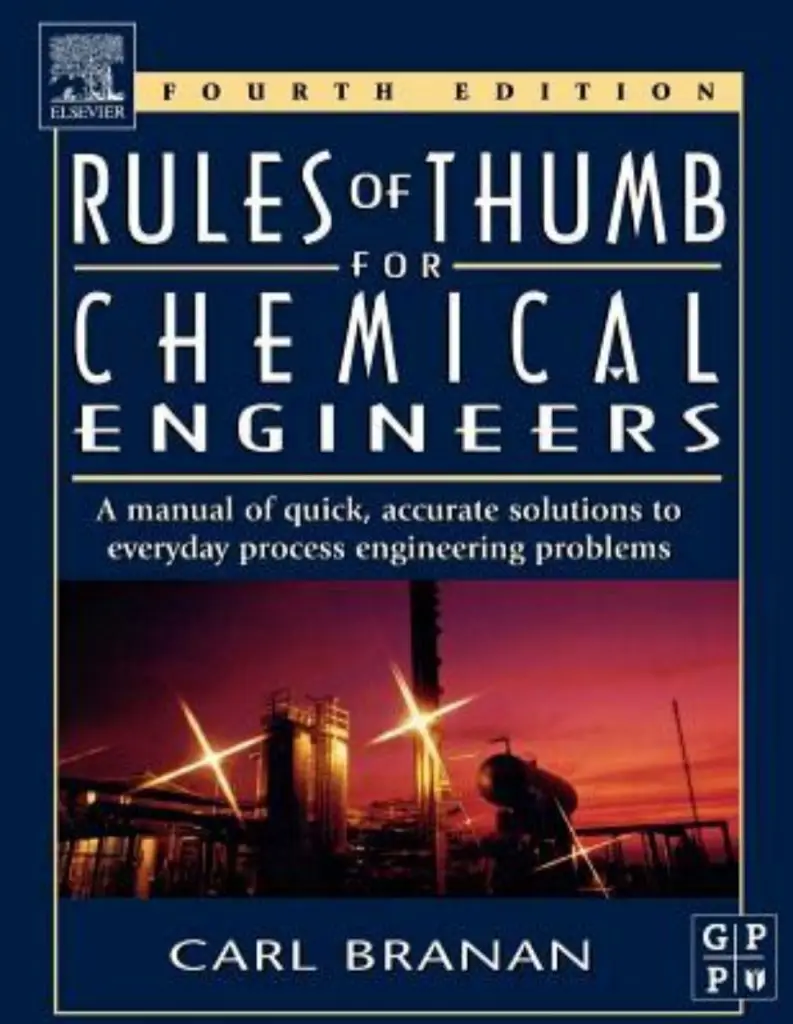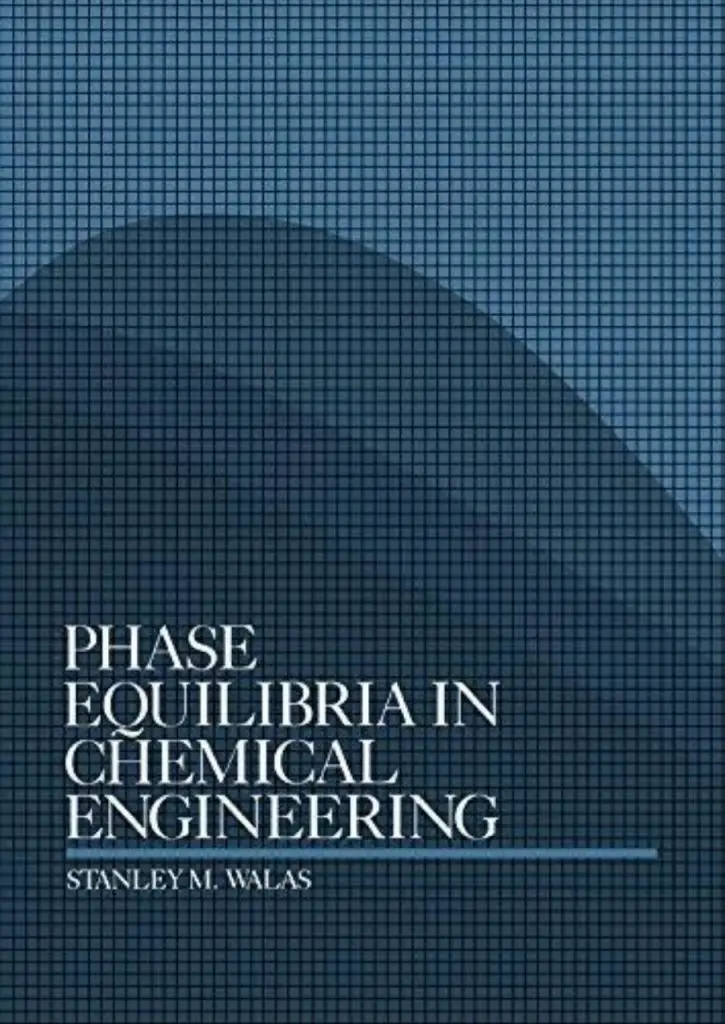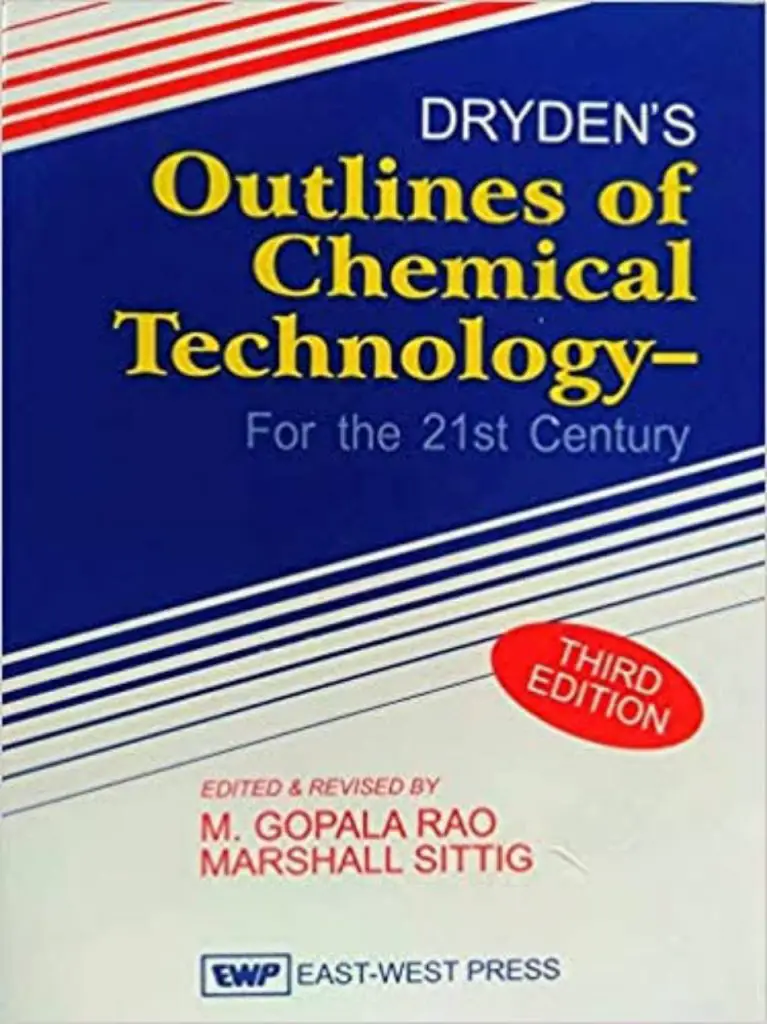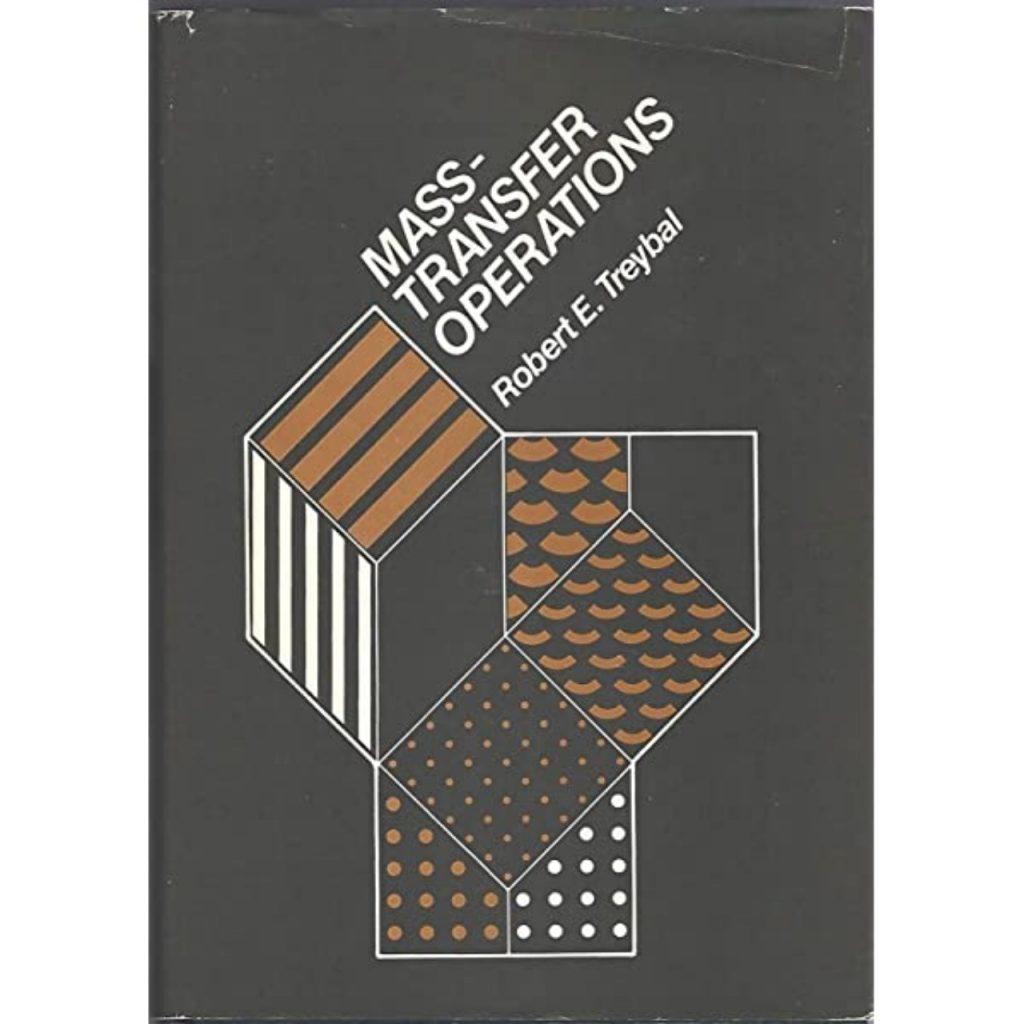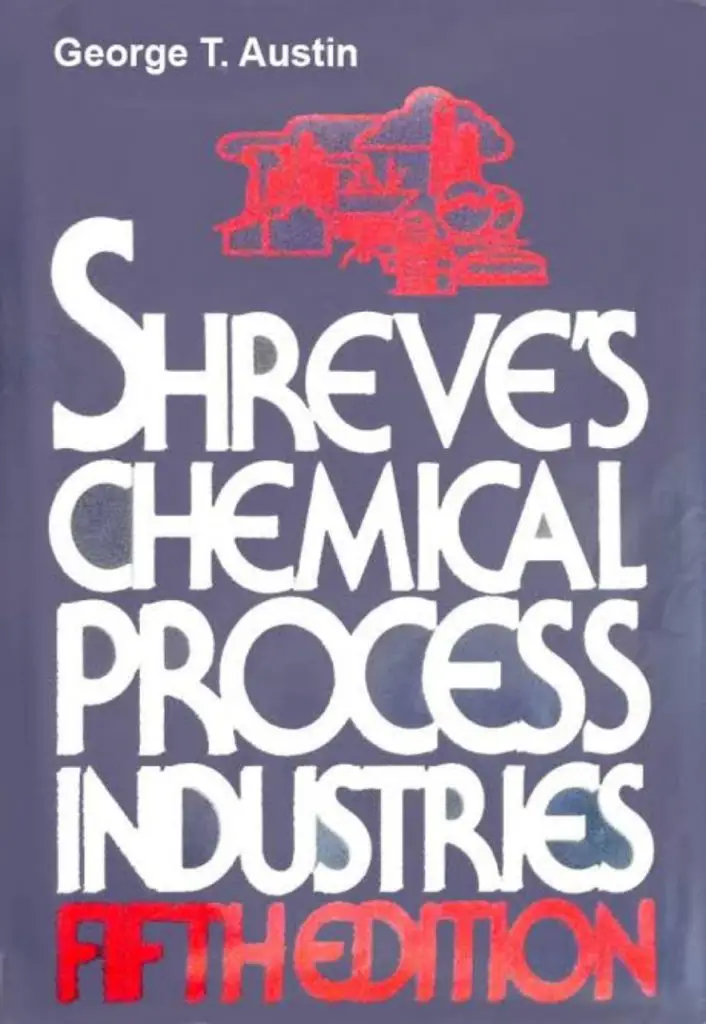Ever wondered what the must-read Chemical Engineering books are? Here is our take.
We made a list of the best books for chemical engineering students.
There are thousands of top books available. However, picking the best books takes time and energy.
But, you’ll find most of the books you need in this article.
This list helps researchers who are tucked in their daily grind to develop their next breakthrough ideas.
For a layperson, this helps you become a well-read lifetime learner.
The books cover fluid dynamics, process control, process system analysis, heat transfer, differential equations, fluid mechanics, transport phenomena, plant design, and plant safety.
Let’s explore each book’s summary and the key takeaways.
Table of Contents
Overview of the Best Chemical Engineering Books
- Perry’s Chemical Engineers’ Handbook [Get the book]
- Distillation Design by Henry Kister [Get the book]
- Transport Phenomena [Get the book]
- Principles of Chemical Engineering Processes [Get the book]
- Chemical Reaction Engineering [Get the book]
- Introduction to Chemical Engineering Thermodynamics [Get the book]
- Chemical Engineering in Practice [Get the book]
- Rules of Thumb for Chemical Engineers [Get the book]
- Phase Equilibria in Chemical Engineering [Get the book]
- Properties of Gases and Liquids [Get the book]
- Dryden’s Outlines of Chemical Technology [Get the book]
- Mass Transfer Operations [Get the book]
- Process Systems Analysis and Control [Get the book]
- Unit Operations of Chemical Engineering [Get the book]
- Shreve’s Chemical Process Industries [Get the book]
Perry’s Chemical Engineers’ Handbook, 9th Edition by Don Green and Marylee Southard
Intro-Why you should read it
This good book is recommended by The Global Home of Chemical Engineers-AIChE, and Chemical Tweak as one of the bibles chemical engineers shouldn’t part with.
This resource continues to equip students with critical knowledge, insights, and data.
Summary-What this book is about
The handbook is an updated version of the previous editions, covering all the recent technological advances in the chemical industry.
Perry’s Chemical Engineers’ Handbook offers you valuable insights into biological processes, chemical processes, and process modeling, among other equally important areas.
This handbook covers thermodynamics, spectrometry, chemical reactors, energy resources, process economics, and reaction kinetics.
Key Takeaways
- Perry’s handbook covers concepts useful in pharmaceutical, chemistry, and chemical engineering professions.
- We should use proper waste Management practices to ensure our environment is clean.
- We should practice Mathematics because it is important to chemical engineering and all other engineering professions.
Distillation Design by Henry Kister
Intro-Why you should read it
This detailed guide is a gem most young chemical engineers overlook. AIChE recommends the book.
Summary-What this book is about
This book is a comprehensive text with the down-to-earth presentation of concepts, making it one of the finest books ever.
Distillation Design is a great tool for chemical engineers working in process industries.
This outstanding publication covers practically all the procedures necessary in distillation columns.
Key Takeaways
- As a chemical engineer, you are a problem solver. You need exposure to chemical engineering processes to know how to handle the challenges that come with them.
- Learn about distillation design as a prerequisite for success in your career.
Transport Phenomena by Byron Bird, Warren Stewart, and Edwin Lightfoot
Intro-Why you should read it
This technical book is recommended by the Engineeringness’ and Chemical Tweak websites as one of the best books for engineers.
The authors revised most of the inaccuracies readers have spotted since the second edition’s publication in 2002.
Summary-What this book is about
This new edition of Transport Phenomena boasts a deeper coverage of several challenging topics, including heat transfer and dimensional analysis.
The book now contains a detailed discussion on convective momentum, polymer flow, mass transport, and energy.
Key Takeaways
- Learning heat transfer, mass transfer, and fluid flow principles is invaluable to every chemical engineering student.
- The straightforward publication language makes understanding the complex topic easy.
- This book covers approaches that will improve your problem-solving skills.
Principles of Chemical Engineering Processes: Materials and Energy Balances by Nayef Ghasem and Redhouane Henda
Intro-Why you should read it
Principles of Chemical Engineering Processes is a recommended book by the Engineeringness website.
This updated second edition contains homework problems and worked examples to improve your text comprehension.
Summary-What this book is about
This comprehensive book introduces students to fundamental principles and techniques in this field.
Principles of Chemical Engineering Processes: Materials and Energy Balances utilize case studies and illustrations to solve, describe, and discuss concepts of units, psychometry, dimensions, steam properties, and much more.
Key Takeaways
- You should have the ability to solve problems related to material and energy balances.
- Chemical engineers are critical thinkers. You should be able to understand and make smart decisions all the time.
- Have the ability to draw diagrams out of words.
Chemical Reaction Engineering by Octave Levenspiel
Intro-Why you should read it
Chemical Reaction Engineering is one of the five books the Engineeringness website recommends for every chemical reaction engineering student.
Chemical Tweak also recommends this book as a key as an important text in the pharmaceutical industry.
Summary-What this book is about
This third edition of the book highlights ways to consistently and effectively address reactor design challenges.
This book stresses qualitative reasoning, simple design approaches, graphical procedures, and comparison of reactors to underline key concepts of chemical engineering.
This method assists students in developing a robust, intuitive feel for great design.
Key Takeaways
- Problem-solving is necessary for learning.
- You should learn the basic principles before moving on to complex chemical engineering topics.
- Small chemical reactors are sometimes better than large reactors in terms of heat transfer.
Introduction to Chemical Engineering Thermodynamics by Joseph Smith, Hendrick Van Ness, and Michael Abbot
Intro-Why you should read it
The Engineeringness website recommends this book for students looking for elementary engineering principles.
The book offers detailed coverage of thermodynamics from the viewpoint of the chemical engineering subject.
Summary-What this book is about
Introduction to Chemical Engineering Thermodynamics explores chemical thermodynamics principles and explains how they apply to chemical processes.
The authors organized the chapters clearly and logically, with realistic problems, illustrations, and interactive examples to improve readers’ comprehension of the complex ideas.
In its seventh edition, this book remains the perfect guide to learning chemical engineering thermodynamics.
Key Takeaways
- The authors employ friendly language to explain the complex aspects of thermodynamics in relation to chemical engineering.
- The inclusion of diagrams and examples makes understanding thermodynamics’ concepts.
Chemical Engineering in Practice: Design, Simulation, and Implementation by John Edwards
Intro-Why you should read it
Chemstations recommend the book.
John Edwards has extensive knowledge of engineering, and he is a great author, too. His book Chemical Engineering in Practice explains what he considers to be key engineering ideas.
Summary-What this book is about
This book relies on CHEMCAD simulations to bring out the important concepts.
This information-rich tool is essential to young engineers, especially those working in process design.
Key Takeaways
- Knowledge of simulation cases will make a big difference in your career.
- This book covers every topic in detail to give practicing engineers and students a detailed explanation of design, simulations, and much more.
Rules of Thumb for Chemical Engineers by Carl Branan
Intro-Why you should read it
The book is recommended by Chemstations as a must-have chemical engineering book.
This comprehensive handbook is a resourceful tool for practitioners and engineers.
Summary-What this book is about
Rules of Thumb for Chemical Engineers features a section on gasification, covering trends and key techniques in the chemical engineering profession.
This book highlights strategies, calculations, and shortcuts to help engineers solve operations, equipment, and design problems.
The book also provides readers with charts, curves, tables, advice, shortcuts, and formulas to save their effort and time.
Key Takeaways
- The book is packed with most of the information you need to solve complex problems.
- The common sense calculations build on chemical engineers’ problem-solving skills.
- The best chemical engineers learn the rules of the thumb.
Phase Equilibria in Chemical Engineering by Stanley Walas
Intro-Why you should read it
The book is recommended by Chemstations as a self-study tool, reference material, or textbook for chemical engineering students studying phase equilibria.
This book is also valuable to practitioners dealing with process design and separation technology.
Summary-What this book is about
Phase Equilibria in Chemical Engineering starts with a detailed chapter on the equation of state, which is linked to thermodynamics.
The book covers chemical equilibria, enthalpy, and much more.
Key Takeaways
- The book highlights theoretical and practical ideas.
- The author concentrates on the current knowledge to explain engineering processes.
- This book is a reference guide for practitioners and a textbook for students.
Properties of Gases and Liquids by Bruce Poling, John Prausnitz, and John O’Connell
Intro-Why you should read it
Chemstations recommend the book as one of the Chemical Engineering books you should read.
Summary-What this book is about
Properties of Gases and Liquids by Poling et al. define and review numerous methods for a small section of gases’ and liquids’ properties.
This book highlights heat capacity, viscosity, surface tension, thermal conductivity, phase equilibria, and diffusion coefficients.
Key Takeaways
- The author explores the physical properties of liquids and gases.
- The topics covered by this book will be helpful throughout your career.
Dryden’s Outlines of Chemical Technology by Gopala Rao and Marshall Sittig
Intro-Why you should read it
Chemical industries revolve around the process of manufacturing, as detailed in Dryden’s Outlines of Chemical Technology.
Summary-What this book is about
This book provides all essential chemical production processes, including key parameters, chemical reactions, and block flow diagrams.
This book discusses each production process by classifying the process, identifying the chemical reactions, and outlining manufacturing the processes’ problems.
Key Takeaways
- Studying the product’s manufacturing process is the hallmark of every chemical engineer’s career.
- Engineers should have the ability to understand and recognize the different chemical processes that occur during manufacturing.
Mass Transfer Operations by Robert Treybal
Intro-Why you should read it
Chemistry Tweak recommends the book for Chemical reaction engineering students.
Summary-What this book is about
Mass Transfer is an important subject area in unit operations. Robert Treybal’s book covers all mass transfer operations, including stripping, distillation, leaching, absorption, etc.
The book includes practical problems after each chapter to help you evaluate the knowledge you’ve learned.
Key Takeaways
- The book highlights must-have concepts for engineers.
- This book is also valuable for those involved with pollution control.
- The use of illustrative examples improves the comprehension of the text.
Process Systems Analysis and Control by Donald Coughanowr and Steven LeBlanc
Intro-Why you should read it
Chemical Tweak recommends this book for process engineers and students.
Your chemical engineering course covers Process engineering design (PED, making this book one of the most valuable in your profession.
Summary-What this book is about
Donald Coughanowr’s book discusses the current automation technologies utilized in industries, including control valves.
You’ll learn open loops, cascade loops, and controllers–derivative, integral, and proportional.
Key Takeaways
- The book covers all you need to know about process dynamics and control.
- Simulink and MATLAB complement the examples in the text to make this book an easy-to-understand read.
Unit Operations of Chemical Engineering by Warren McCabe, Julian Smith, Peter Harriot
Intro-Why you should read it
Units Operations of Chemical Engineering contains basic concepts every chemical engineer should know.
Summary-What this book is about
This book covers the major points in unit processes and operations, making it one of the best chemical engineering books on these concepts.
The authors employ a step-by-step style to offer the much-needed concepts of unit operations to students and practitioners in the field.
Key Takeaways
- This book’s coverage of fluid flow, heat transfer, and mass transfer makes it an essential textbook for university students globally.
- The book explains the contents in theory and by practice.
- This book covers unique topics of adsorption, membrane operations, and diafiltration.
Shreve’s Chemical Process Industries by George Austin
Intro-Why you should read it
The Chemical Tweak recommends this book for Chemical Engineering students.
Summary-Wh
Shreve’s Chemical Process Industries underscores the production processes applied in food and fragrance additives, pharmaceutical industry, detergents, and soaps fermentation.
This book also covers the history, usage, and production processes of potassium, phosphorus, and hydrochloric acid.
Key Takeaways
- Chemical engineers should protect the environment they work in.
- The book underscores the role of a chemical engineer during chemical processes.
- The book also explores the nuclear industries and explains fuels, toxic chemicals, and explosives.
Conclusion
Thanks to the readily available top-quality books, chemical engineering concepts are now easy to grasp.
We hope our article on the best chemical engineering books was helpful to you.
References
[1] https://engineeringness.com/top-5-chemical-engineering-books-for-fundamental-principles/
[2] https://www.chemstations.com/Knowledge_Center/Books_You_Should_Own_About_Chemical_Engineering/
[3] https://chemicaltweak.com/chemical-engineers-books-recommendation/


